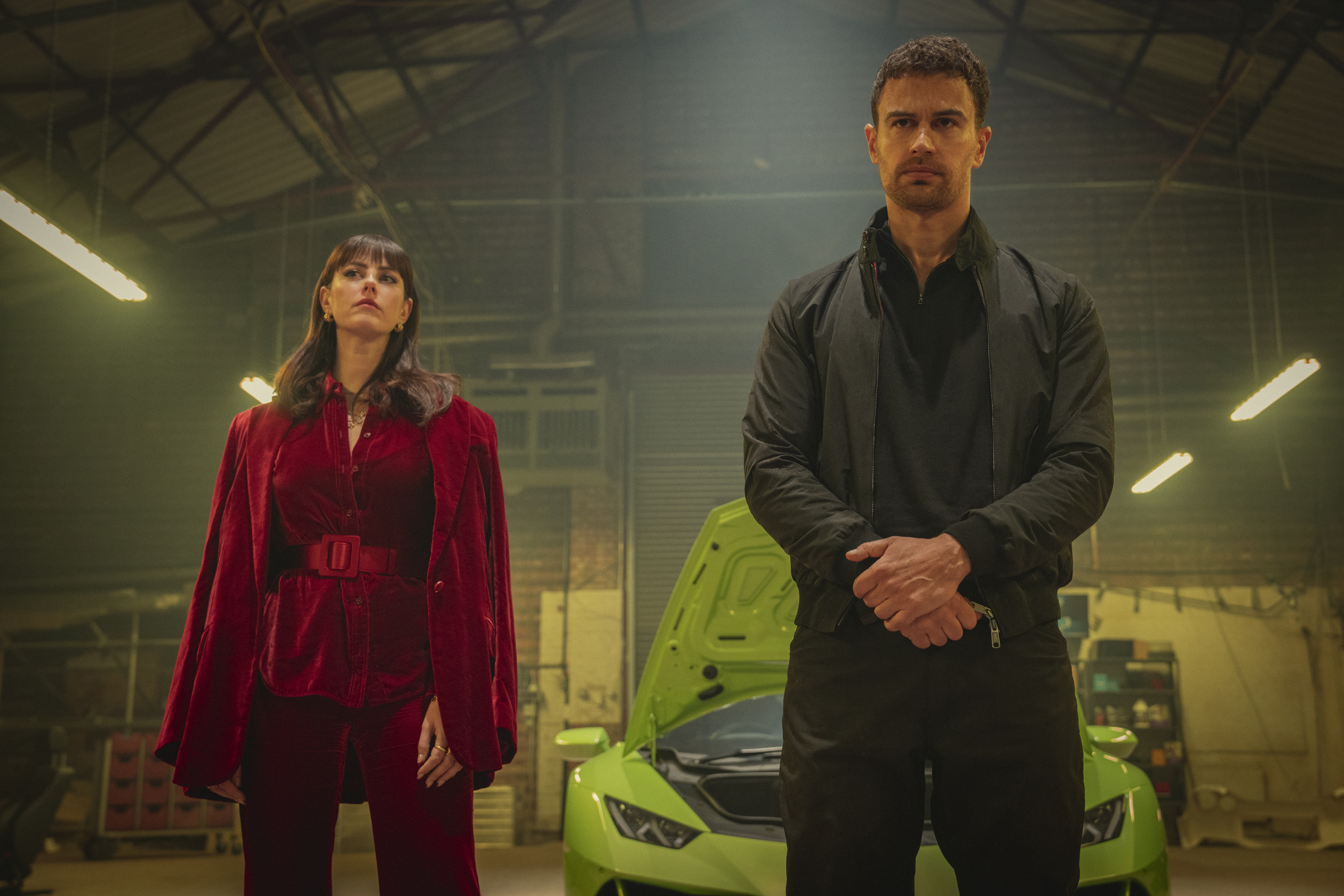“Do you know what I love about the British aristocracy?” asks an astute character in Netflix’s The Gentlemen. “They’re the original gangsters. The reason they own 75% of this country is because they stole it. William the Conqueror is worse than Al Capone.” This is the central joke of the series, created by Guy Ritchie as an extension of his 2019 film: that landed nobility have more in common with the thugs who run the criminal underworld than they’d like to admit.
Like many of the show’s tropes, it’s a clever notion that gets old long before the end of the season, which will be available to stream on March 7. To his credit, instead of rehashing the original Gentlemen, Ritchie—who helped write and direct the Netflix adaptation—has cooked up a new story set in a similar world. The dialogue is as quippy, the visual style as slick, and the casting as inspired as fans have come to expect from Britain’s reigning king of the pitch-black crime comedy. But a little of Ritchie’s sensibility goes a long way; what’s exhilarating every few years at the cinema can become tedious when repeated throughout eight episodes.
The White Lotus and Divergent alum Theo James gives a dynamic performance as Capt. Eddie Horniman, the second son of a duke, who has found success as an army officer in lieu of the inheritance he assumes will go to his older brother, Freddy (Daniel Ings, very funny). Called back to the family estate to bid farewell to his dying father, Eddie learns that the duke’s will names him as the heir. It shouldn’t be that surprising; Freddy is an idle, debauched mess. And now his problems—including an $8 million debt to a local gangster—are Eddie’s problems.
The Hornimans don’t have that kind of cash on hand because, like so many aristocrats since the Downton Abbey era, their wealth is tied up in their palatial home and 15,000-acre grounds. Luckily—or not—it turns out the duke was monetizing that estate by allowing drug lord Bobby Glass (Ray Winstone) to grow massive quantities of marijuana on the property. Now Bobby is in prison, but his daughter Susie (Kaya Scodelario, as enchantingly ice-cold here as she was in her breakout Skins role) is a powerful and canny enough surrogate to help resolve Freddy’s debts. The problem is, Eddie wants to extricate his family from the Glasses’ scheme and Susie has no intention of letting him out. Grow house aside, she sees how the unflappability he’s cultivated in the military could make him an asset to her. As he navigates the endless series of obstacles she places in the way of his freedom, he unwittingly develops a taste for crime.
Their relationship, with smartly underplayed hints of romantic tension, is the highlight of the show. Both hypercompetent and calm under pressure, these two characters from different worlds make an ideal team. Yet they can’t fully trust each other because their aims are fundamentally incompatible. Also, Eddie is more bothered than Susie is by the collateral damage of criminal enterprise. Thus begins a back-and-forth that gives the season its shape. In most episodes, they’re charged with completing a task that will supposedly bring him one step closer to ending the Hardimans’ arrangement with the Glasses. Then, often due to Eddie’s inexperience or Freddy’s volatility (his new-found resentment of his younger brother doesn’t help), something goes wrong. A series of gritty, violent twists ensues, until the current hurdle is cleared and a new one is placed in Eddie’s way, to be tackled in the following episode.
As usual, Ritchie adds color by introducing a parade of eccentric minor characters. There’s the Glasses’ chief grower Jimmy Chang (Michael Vu), a Rasta-lite stoner and weed-cultivation savant whose carelessness in his personal life could make trouble for his boss. A gangster named Gospel John (Pearce Quigley) campily mixes Christian zealotry with Old Testament fury. Giancarlo Esposito plays the mysterious Stanley Johnston, a genteel American billionaire determined to buy his way into the British aristocracy (or at least into the Hornimans’ estate), with secrets that call back to Gus Fring, Esposito’s Breaking Bad and Better Call Saul character.

The action is equally quirky. An early explosion of violence begins with Freddy in a chicken suit. When the blood flows, so too, in what is now a gangster-movie cliché, does the histrionic choral music. Ritchie fans (not to mention fans of Quentin Tarantino) will recognize the snappy, stylized, allusive dialogue, from lengthy conversations about fast-food breakfasts to exchanges like: “What are the options?” “Frying pan or fire.” Scenes are often annotated with handwritten on-screen text that calculates monetary transactions and provides vital stats on new characters.
This sort of style-over-substance filmmaking can be lots of fun in a feature—especially at its freshest, in early Ritchie efforts like Snatch and Lock, Stock, and Two Smoking Barrels. Even when the original Gentlemen got tangled in its own twists, the movie’s brisk pace and charming A-list cast (Matthew McConaughey, Hugh Grant, Henry Golding, Michelle Dockery, Colin Farrell) maintained its momentum. The show’s cast may be less famous, but their performances are just as impressive. And there are ways in which it improves on its source material; the plot is more comprehensible, there’s less casual racism and antisemitism in the script, and Scodelario gets the heaps of screen time she deserves in a variation on Dockery’s underwritten role.
But midway through season, Ritchie’s signature affectations get tiresome, and the format predictable. A dearth of salient themes leaves The Gentlemen repeating its one big idea: “People either survive in the jungle or exist in the zoo,” as one character describes the lives of criminals and aristocrats, respectively. That may be true, but if you spend too long in a familiar jungle, wild animals might become as boring to watch as their counterparts in posh captivity.




